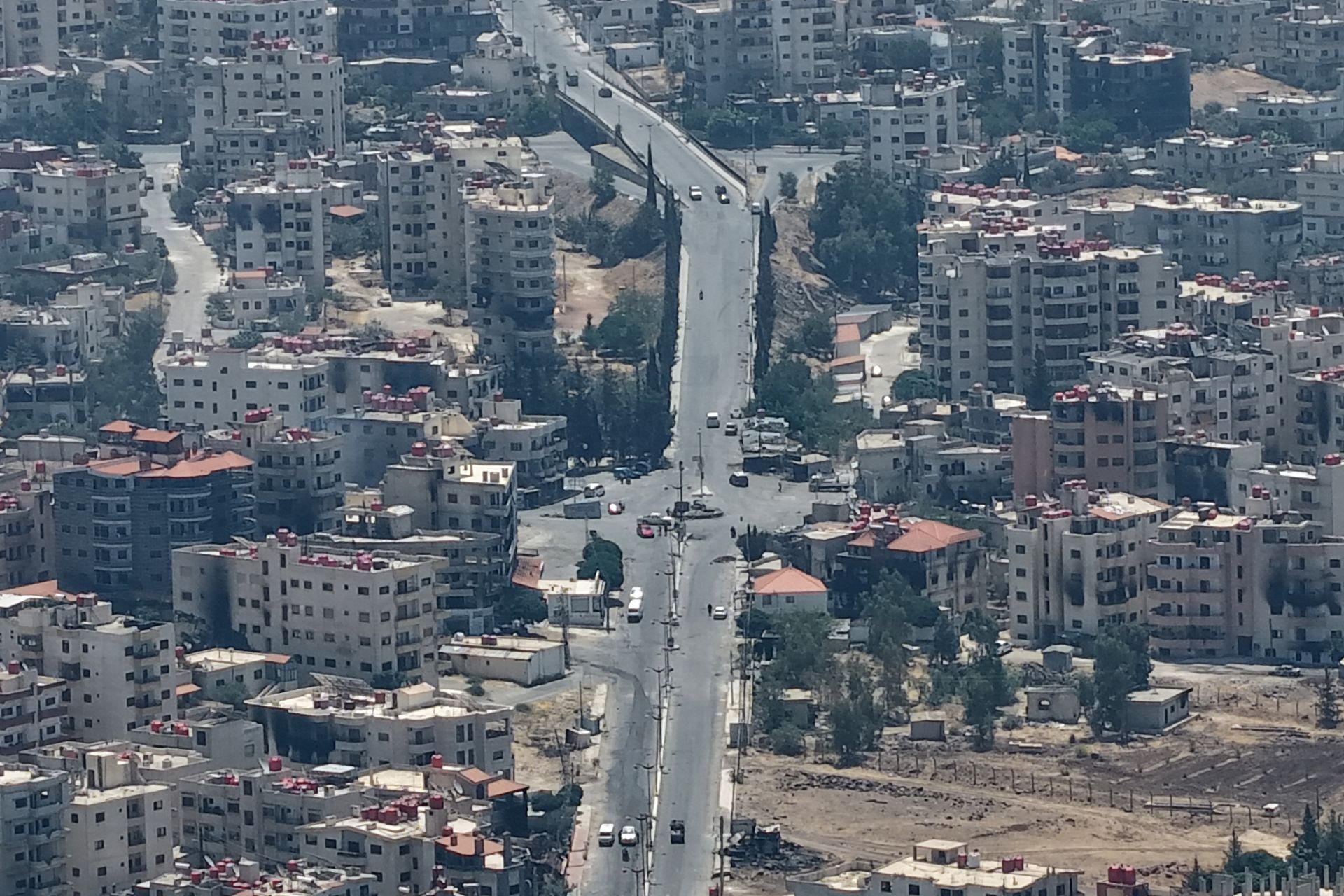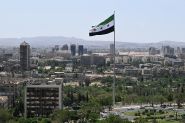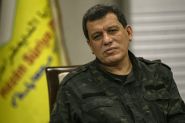- Home
- Middle East
- Syria Sets Date for Selection of New Transitional Parliament

A view of the Sweida ©AFP
Syrian authorities announced on Sunday that a new transitional parliament would be selected in September, with local electoral bodies picking two-thirds of the lawmakers and the country's interim president naming the rest.
After toppling longtime ruler Bashar al-Assad in December after nearly 14 years of civil war, Syria's new authorities -- led by President Ahmed al-Sharaa -- dissolved the country's rubber-stamp legislature and adopted a temporary constitutional declaration to cover a five-year transition period.
In June, a presidential decree established a 10-member committee to supervise the formation of local electoral bodies to select a new batch of lawmakers.
State news agency SANA reported on Sunday that committee head Mohammed Taha al-Ahmad had met with Sharaa to discuss the process, later announcing plans for a new 210-seat parliament with 140 members chosen by the local bodies and 70 appointed by the president.
"The election of members of the People's Assembly is expected to take place between 15-20 September," Ahmad was quoted as saying, vowing women would be represented in the process.
Ahmad's committee presented Sharaa with the final plan for the selection process during a meeting on Saturday, according to a statement from the presidency.
The local electoral bodies will be formed within about three weeks of the signing of the decree laying out the temporary system, SANA cited Ahmad as saying.
After that, candidacies will open, with hopefuls given about a week to prepare their platforms before debates are held.
The assembly will have a renewable mandate of 36 months, according to the constitutional declaration adopted in March.
The declaration stated that the parliament would exercise legislative powers until a permanent constitution was adopted and new elections were held.
When it was first announced, critics of the declaration warned it concentrated power in Sharaa's hands and failed to reflect the country's ethnic and religious diversity.
The authorities' ability to maintain stability and security, particularly for minority groups, has been repeatedly called into question by periodic outbreaks of violence in which government forces and their allies have been implicated.
AFP
Read more



Comments